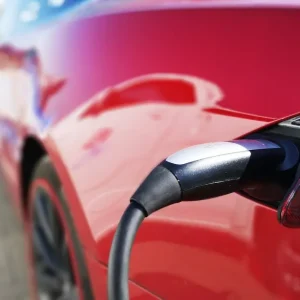It may have taken eight years but Volkswagen has finally seen fit to update its compact off-roader, the Tiguan. With dozens of new crossovers lining up to win the attention of user-choosers, Volkswagen has wisely made the Tiguan a much more striking proposition than its predecessor.
What remains very similar, however, is the range of engines available, with several turbocharged 1.4- and 2.0-litre petrol units along with a brace of 2.0-litre diesel motors with 110hp to 240hp.
Four-wheel drive and DSG automatic gearboxes are also available. Trim levels, meanwhile, range from basic S specification to SE and SE Navigation – which are likely to make up a large proportion of fleet orders – and plush SEL and sporty R-line.
The model likely to prove most popular with fleets is the 2.0-litre diesel in two-wheel drive, manual form for maximum economy, with a claimed 58.9mpg and emissions of 125g/km, warranting 25% benefit-in-kind. This lags behind rivals from BMW, Mazda and Ford to name a few, with the former returning a full 10mpg more and being capable of 109g/km, meaning 4% lower BIK charges.
The Tiguan isn’t the most impressive machine on the road either. The suspension offers up a reasonably comfortable ride on smooth tarmac, although it doesn’t isolate passengers from the road surface as well as it could, while both the BMW X1 and the Mazda CX-5 offer sharper handling.
The steering is reasonably precise, while the gear change is light and easy to manage, although the Tiguan is very much more competent than engaging behind the wheel. We also didn’t find the front seats particularly comfortable for a machine likely to spend much of its life on the motorway, with limited back and side support.
Muscle from the 150hp diesel engine is more than adequate, only feeling a little overwhelmed by the Tiguan’s heft in four-wheel drive, automatic form. Engine refinement, though, could be better, lagging behind the same motor fitted to the Audi A4 and the 2.0-litre unit in BMW’s rival.
Space in both rows of seats, on the other hand, is generous, with the sliding rear seats adding extra practicality. The boot is also usefully large, while the whole interior feels solid, high quality and easy to navigate.
Turn to costs, however, and the Tiguan again struggles. Upmarket alternatives from BMW and Mercedes not only beat the VW for costs at 53.2p per mile and 54.3ppm respectively compared with 58.3ppm, but undercut it on BIK charges at £95/£189 and £104/£208 compared with £116/£233 too. Meanwhile, appealing models from Mazda, Ford, Hyundai all also cost less.
While the original Tiguan may have been a big sales success, the new model can’t compete on costs – which you can partly put down to residuals that fall below 40%, unlike German, Japanese, Korean and American rivals – and doesn’t stand out in any area besides perhaps boot space. As a result, there are many more obvious fleet crossover choices.





